MENU
The Electronic Scholarly Publishing Project: Providing world-wide, free access to classic scientific papers and other scholarly materials, since 1993.
More About: ESP | OUR CONTENT | THIS WEBSITE | WHAT'S NEW | WHAT'S HOT
ESP Essays 25 Feb 2026 Updated:
Genetics and History
How a Single Gene Mutation
Affected the Entire World
Late in the summer of 1818, a human sperm and egg united to form a human zygote. One of those gametes, we don't know which, was carrying a newly mutated gene. A century later, after passing through three generations, a copy of that mutation contributed to the overthrow of the Tsar and the emergence of communism in Russia.
Improbably enough, a single change in a single molecule in 1818 may have profoundly affected 20th-century world history. Without the evil influence of the mad monk Rasputin, Russia might well have evolved into a constitutional monarchy and communism never come to power. Was the mutation of 1818 responsible for the power of Rasputin? Here's what happened.
A zygote carrying that new mutation became Queen Victoria of England and the new mutation was for hemophilia B, bleeder's disease, carried on the X chromosome. Victoria passed the gene on to some of her children and grandchildren, including Princess Alexandra, who married Nicholas II, Tsar of Russia, in 1894.
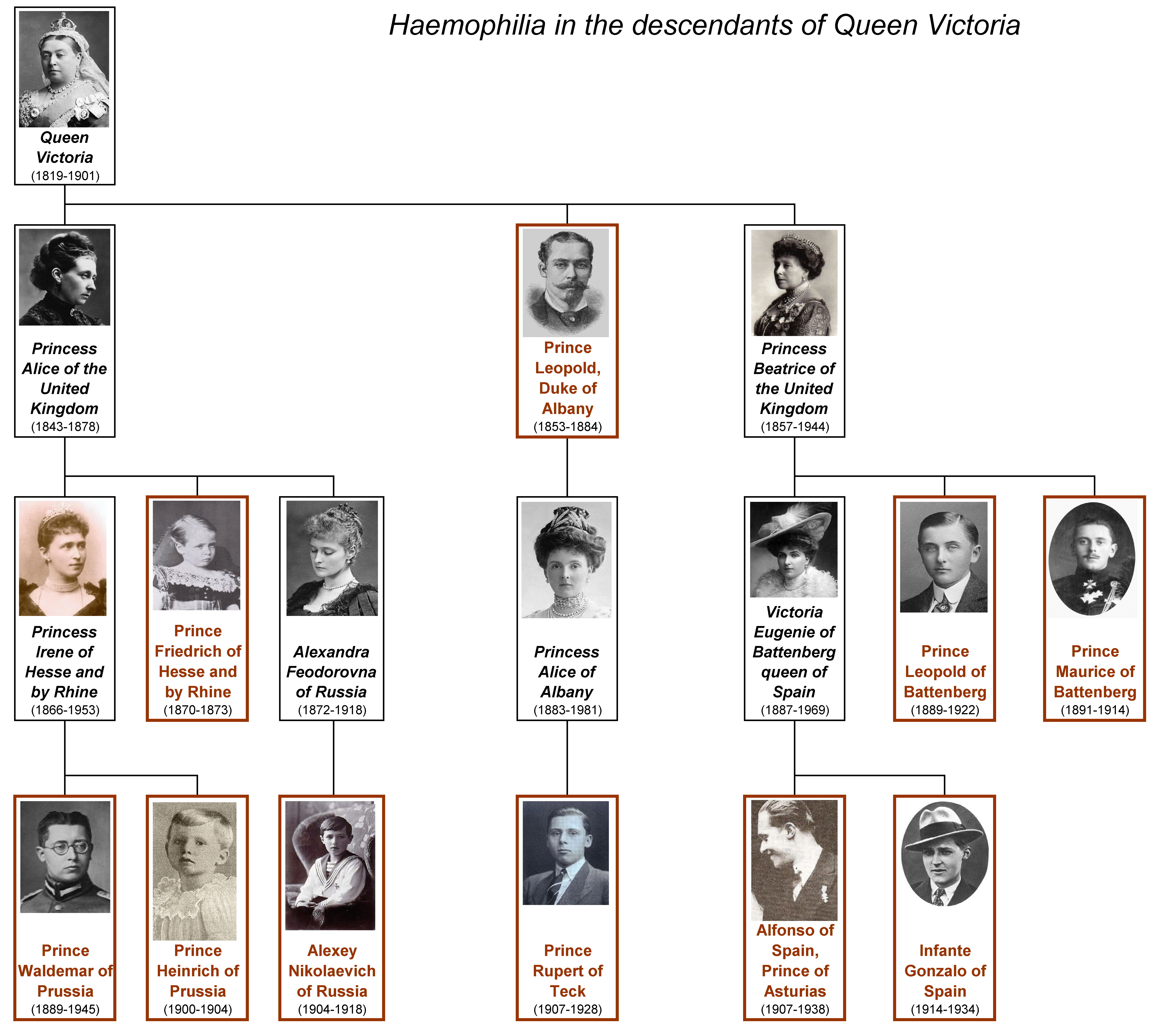
The descendants of Queen Victoria who carried, or expressed, her gene for hemophilia. (Click HERE for larger version.)
By 1903, Nicholas and Alexandra had produced four daughters. The next year, the first male heir appeared — His Imperial Highness Alexei Nicolaievich, Sovereign Heir Tsarevich, Grand Duke of Russia.
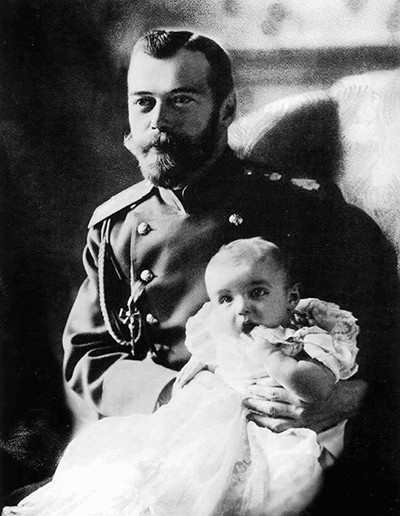
Tsar Nicholas with Tsarevich Alexei, 1904.
From his father, the baby Alexei inherited a claim to the throne. From his mother, he inherited an X chromosome carrying a copy of the mutant gene for hemophilia B.
Soon after his birth, signs of the boy's mutant gene appeared. At six weeks, he experienced a bout of uncontrolled bleeding and by early 1905 the royal physicians had concluded that he was suffering from hemophilia. In addition to this personal tragedy, the year was a terrible year for Russia — war with Japan ended in defeat and revolutionary fervor began to sweep the country. It was also the year that Grigori Yefimovich Rasputin was introduced to the royal family.
Before modern medicine, life for the parent of a child with hemophilia was unrelenting stress. During painful bleeding episodes, little help could be offered. During healthy interludes, constant worry that a fatal mishap may be a moment away was inescapable. Realizing that doctors had few answers, such a parent may look elsewhere for help. So it was with Alexandra. She threw herself into the church and offered fervent prayers for her son. When no miracle came, she doubted her own worthiness and sought someone closer to God to intercede on her behalf.

Grigori Yefimovich Rasputin — a Russian mystic and self-proclaimed holy man who befriended the family of Tsar Nicholas II and gained considerable influence in late imperial Russia.
In 1905, Rasputin arrived in St. Petersburg, accompanied by his reputation as a man of god with miraculous healing powers. His peasant dress, unkempt manner, and personal magnetism made him an exotic celebrity in fashionable circles and by November he was introduced to the royal family. His immediate rapport with the children led Alexandra to believe that her prayers may have been answered and that Rasputin would be the intercessor to save her son. From then on, Rasputin played a special role in the royal court.
In time, Rasputin's penchant for debauchery became known and many concluded that he was a fraud and a charlatan. Alexandra, however, was unconvinced and held that the stories circulating about Rasputin were rumors and lies. Unwilling to separate his wife from someone in whom she believed, the Tsar refused to ban Rasputin from court, despite the advice of many who argued that his continued presence was an embarrassment and a liability.
Until 1912, Alexandra might have been willing to abandon Rasputin, should anyone have been able to provide credible evidence against him. In the fall of that year, however, events occurred that made Rasputin's standing with the Tsaritsa absolutely unshakable. On holiday at Spala in Poland, eight-year old Alexei fell and triggered his worst attack of hemophilia. An abdominal bruise led to internal bleeding accompanied by massive swelling and intense pain. His legs became paralyzed and for days he cried in agony. As his condition worsened, first drafts of his death announcement were drawn up and last rights administered. Alexandra, without sleep for days, was exhausted and in a state of drained hysteria.
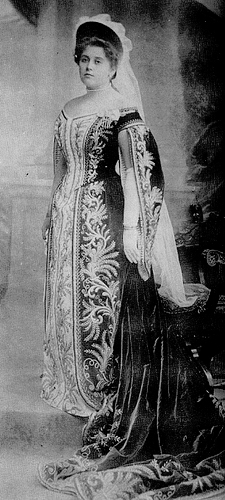
Anna Alexandrovna Vyrubova — lady-in-waiting, friend, and confidante of Tsaritsa Alexandra Fyodorovna.
Meanwhile, a friend of Alexandra's, Madame Vyrubova, sent a cable to Rasputin asking him to pray for Alexei. Rasputin immediately cabled back, "God has seen your tears and heard your prayers. Do not grieve. The Little One will not die. Do not allow the doctors to bother him too much." A day later, the hemorrhage stopped inexplicably. While others were puzzled by this remarkable coincidence, Alexandra was convinced that Rasputin had intervened with God and that a miracle had happened. From then on, nothing could make Alexandra give up the belief that the welfare of her son depended absolutely upon following the advice of Rasputin. Soon, Rasputin convinced her that the welfare of Russia and the continued existence of the monarchy also depended upon him. Rasputin's control over the royal family was now complete.
At the time, Russia was a large and absolute autocracy. Unwilling to discover what would happen to their authority were the people to discover that the only heir was in constant danger of death, Nicholas and Alexandra insisted that the boy's hemophilia be kept secret. Although public knowledge would no doubt have adversely affected the monarchy, secrecy was worse. Without knowledge of the hemophilia, no one could understand Rasputin's power over the royal family. Given Rasputin's reputation, rumors of royal debauchery began to spread, undermining respect for the Empress, the Tsar, and the monarchy.
While World War I raged and political turmoil churned in the country, Alexandra heeded Rasputin and rejected all attempts to reform. In an effort to break Rasputin's hold over the royal family, several conspirators murdered Rasputin in December of 1916.
However, Alexandra clung to Rasputin's advice and continued to reject change. On February 16, 1917, the British general Sir Henry Wilson, in Russia for the allied conference in Petrograd, recorded in his diary, "the Emperor and Empress are riding for a fall. Everyone — officers, merchants, ladies — talk openly of the absolute necessity of doing away with them." In March, Nicholas was forced to abdicate and the royal family was placed under house arrest by the Provisional Government. In November, the Provisional Government fell to the Bolshevik revolution. The next July, almost exactly 100 years after that first mutation, Nicholas, Alexandra, and all of their children were murdered by their Bolshevik guards.
Alexander Fyodorovich Kerensky, the head of the Provisional Government after the Tsar, has claimed, "Without Rasputin, there could have been no Lenin."
No royal hemophilia, no Rasputin; no Rasputin; no Lenin; no Lenin, no communist Russia. Could it be that the single mutation in the single cell that became Victoria was responsible for the rise of communism?
R. K. Massie has written:
Had it not been for the agony of Alexis' hemophilia, had it not been for the desperation which made his mother turn to Rasputin, first to save her son, then to save the pure autocracy, might not Nicholas II have continued retreating into the role of constitutional monarch so happily filled by his cousin King George V? It might have happened, and, in fact, it was in this direction that Russian history was headed. In 1905, the Russian people had had a partial revolution. Absolute power was struck from the hands of the Tsar with the creation of the Duma. In the era of Stolypin and the Third Duma, cooperation between the throne and parliament reached a level of high promise for the future. During the war, the nation asked not for revolution but for reform — for a share of responsibility in fighting and winning the victory. But Alexandra, goaded by Rasputin, passionately objected to any sharing of the Imperial power. By giving way to his wife, by fighting to save the autocracy and denying every plea for responsible government, Nicholas made revolution and the eventual triumph of Lenin inevitable.
R. K. Massie. 1967. Nicholas and Alexandra. New York: Atheneum. p. 506
Perhaps a single genetic event can change the course of history...
ESP Quick Facts
ESP Origins
In the early 1990's, Robert Robbins was a faculty member at Johns Hopkins, where he directed the informatics core of GDB — the human gene-mapping database of the international human genome project. To share papers with colleagues around the world, he set up a small paper-sharing section on his personal web page. This small project evolved into The Electronic Scholarly Publishing Project.
ESP Support
In 1995, Robbins became the VP/IT of the Fred Hutchinson Cancer Research Center in Seattle, WA. Soon after arriving in Seattle, Robbins secured funding, through the ELSI component of the US Human Genome Project, to create the original ESP.ORG web site, with the formal goal of providing free, world-wide access to the literature of classical genetics.
ESP Rationale
Although the methods of molecular biology can seem almost magical to the uninitiated, the original techniques of classical genetics are readily appreciated by one and all: cross individuals that differ in some inherited trait, collect all of the progeny, score their attributes, and propose mechanisms to explain the patterns of inheritance observed.
ESP Goal
In reading the early works of classical genetics, one is drawn, almost inexorably, into ever more complex models, until molecular explanations begin to seem both necessary and natural. At that point, the tools for understanding genome research are at hand. Assisting readers reach this point was the original goal of The Electronic Scholarly Publishing Project.
ESP Usage
Usage of the site grew rapidly and has remained high. Faculty began to use the site for their assigned readings. Other on-line publishers, ranging from The New York Times to Nature referenced ESP materials in their own publications. Nobel laureates (e.g., Joshua Lederberg) regularly used the site and even wrote to suggest changes and improvements.
ESP Content
When the site began, no journals were making their early content available in digital format. As a result, ESP was obliged to digitize classic literature before it could be made available. For many important papers — such as Mendel's original paper or the first genetic map — ESP had to produce entirely new typeset versions of the works, if they were to be available in a high-quality format.
ESP Help
Early support from the DOE component of the Human Genome Project was critically important for getting the ESP project on a firm foundation. Since that funding ended (nearly 20 years ago), the project has been operated as a purely volunteer effort. Anyone wishing to assist in these efforts should send an email to Robbins.
ESP Plans
With the development of methods for adding typeset side notes to PDF files, the ESP project now plans to add annotated versions of some classical papers to its holdings. We also plan to add new reference and pedagogical material. We have already started providing regularly updated, comprehensive bibliographies to the ESP.ORG site.
ESP Picks from Around the Web (updated 28 JUL 2024 )
Old Science
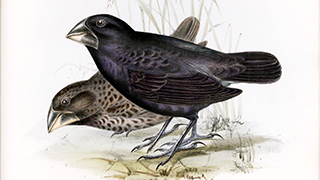
Weird Science
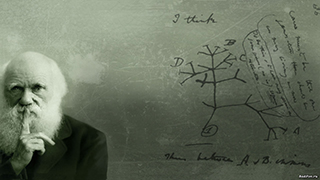
Treating Disease with Fecal Transplantation
Fossils of miniature humans (hobbits) discovered in Indonesia
Paleontology
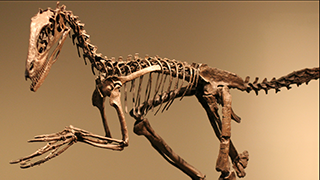
Dinosaur tail, complete with feathers, found preserved in amber.
Astronomy

Mysterious fast radio burst (FRB) detected in the distant universe.
Big Data & Informatics

Big Data: Buzzword or Big Deal?
Hacking the genome: Identifying anonymized human subjects using publicly available data.